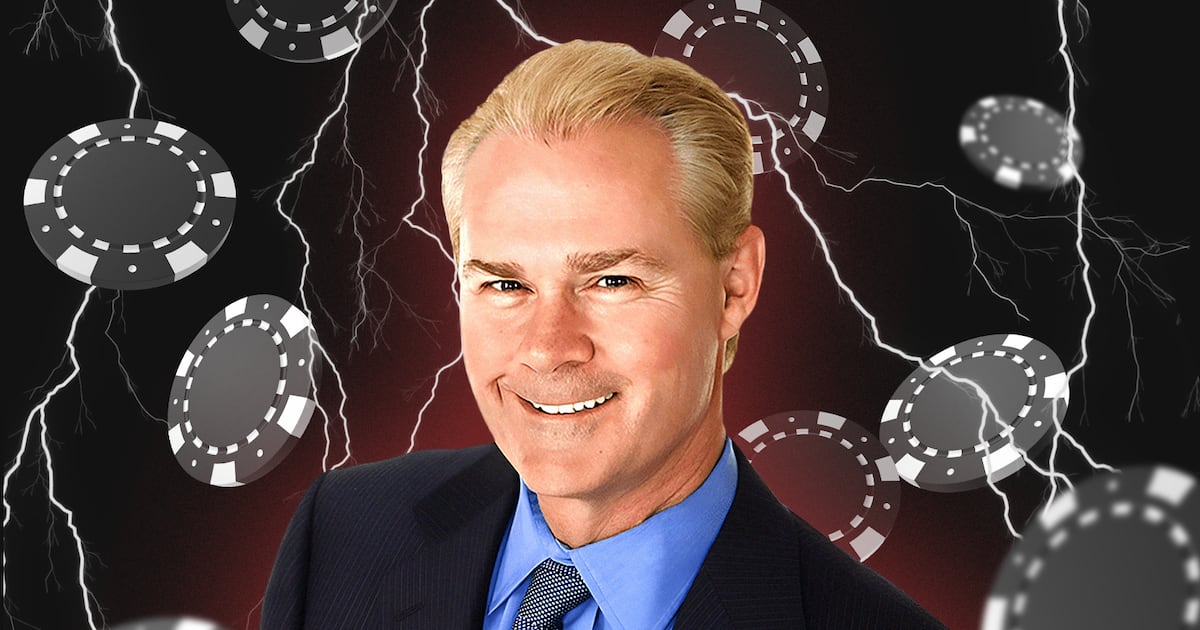- Scott Purcell takes a never-say-die approach to startup creation.
- He’s founded crypto custodians and is now doing payments.
- Purcell’s unusual practices include the right to mandate ‘body type requirements’ for employees.
Scott Purcell isn’t your typical crypto founder. He’s not in his 20s, isn’t perpetually online, and hasn’t launched his own cryptocurrency.
But the 64-year-old serial entrepreneur does have one thing in common with many crypto CEOs: His companies have lost millions in customer assets.
And investors keep giving him money.
“My dad is 83, and he recently started another company,” Purcell told DL News. “I got the same bug.”
In an industry rife with colourful characters, Purcell, an MIT-educated businessman, is right at home.
He founded an online hub for swingers, is business partners with a former male porn star, and was fond of winging to business meetings in a private jet.
Moreover, Purcell insists that his employees comply with a handbook that reserves the right to mandate that all staffers wear “explicit styles of dress” and maintain specific “body type requirements.”
Did we mention he lives in Las Vegas?
Join the community to get our latest stories and updates
Short of funds
Just like the many bettors that hit his hometown’s gaming tables, Purcell has learned not to take his losses too hard.
In June 2023, Banq, a digital bank he co-founded, declared bankruptcy and lost investors millions. That same year, Prime Trust, a crypto custodian he also co-founded, collapsed after it was short $84 million in customer funds. Purcell wasn’t running Prime Trust at the time.
Then last August, Fortress Trust, another crypto custodian he led, was hacked for approximately $15 million in a complicated exploit that involved other parties.
After this article was published on Thursday, Purcell told DL News that he was long gone from Prime Trust when it ran into trouble.
Now Purcell has raised $1.5 million for a new startup from five undisclosed investors, according to a filing with the Securities and Exchange Commission.
His latest venture may be minuscule in a market where startups regularly attract eight-figure fundraising rounds. Yet Purcell’s ability to continually secure capital demonstrates how crypto founders often rebound after spectacular failures.
In 2023, Kyle Davies and Su Zhu launched a new venture after Three Arrows Capital, their crypto hedge fund, hit the wall in a $3.3 billion crackup the year before.
Arthur Hayes, the founder of the crypto derivatives exchange BitMEX, pleaded guilty to violating US banking law in 2022. Now, he’s made more than two dozen investments in crypto startups and is a leading influencer in the crypto community.
Swearing off crypto
Even Changpeng Zhao is staging a comeback. After the Binance co-founder pleaded guilty to violating US banking law in November, he launched a new venture called Giggle Academy, an educational technology startup.
In his own small way, Purcell is back, too, but after three tries, he’s sworn off crypto.
His new company, GigPay, is an online platform designed to facilitate payments between companies and gig workers. It doesn’t involve blockchain-related technology. And when asked whether he’ll dive back into digital assets, Purcell sounded exhausted.
“Never, say never,” he said, “but it’s not something that I really want to do.”
Swingers hub
Purcell’s career tracks many of the breakthroughs that have defined tech for the last 25 years.
At the peak of the dotcom era in 1999, Purcell sold an internet service provider called Epoch Networks for an undisclosed sum.
Then he started a music streaming business, created a site where users can write autobiographies, and founded Kasidie.com, an online hub for swingers.
“In five years, I’d love to be the Playboy of the swinging world,” he told The Denver Post in 2008. He later appeared on Playboy TV’s series “Swing” and sold Kasidie.com four years later.

Scott Purcell (centre),at a party co-sponsored with Crypto.com in 2022 at Consensus, a crypto conference in Austin, Texas. Photo courtesy of Scott Purcell
By 2016, Purcell had eased into the financial industry with Prime Trust, which he said was originally set up to hold securities and other assets for clients.
But as crypto became big money, Purcell saw a market opportunity.
Crypto boom
Around 2019, Prime Trust began to custody, or store, crypto, according to a former employee.
Prime Trust worked with the US units of Binance and Strike, a Bitcoin payments company. It also worked with Bittrex, a crypto exchange the SEC sued in 2023, according to an archived version of the company’s website.
And, in 2021 and 2022, Prime Trust raised $176 million over multiple rounds from Kraken Ventures, Samsung’s venture firm, and others, according to Crunchbase.
Tensions mount
As the crypto custodian grew, tensions mounted between Purcell and Jon Jiles, the chairman of Prime Trust’s board of directors and Purcell’s longtime business partner.
“He felt he wasn’t getting the respect and having the control that he wanted,” Purcell said of Jiles, who is also the godfather to his daughter.
Jiles didn’t respond to phone calls, emails, or messages on LinkedIn from DL News.
In January 2021, Purcell stepped away from the daily operations of Prime Trust to solely focus on Banq, an online bank he and Jiles had also founded.
And in October 2021, Purcell exited from Banq and Prime Trust with “enough money to buy a plane,” he said. He promptly started Fortress Blockchain Technologies.
Originally conceived as a company that held NFTs deemed to be securities, it eventually became akin to Prime Trust and let customers buy, sell, store, and move cash and crypto.
Purcell soon raised $22.5 million for his new venture and hired many of the same executives, including James Bingham, a former porn star and longtime business associate.
In 2023, the three companies Purcell founded broke down within months of each other. The failure of Prime Trust was especially harsh.
Nevada state regulators took control of the firm after the crypto custodian, under a new CEO, lost access to some of its wallets and unsuccessfully traded its customers’ crypto to make up the difference.
According to court documents, its total debt to its customers was $84 million.
Crypto wounds
Purcell receded from public view after Fortress was hacked in August, and he resigned as CEO.
Purcell told DL News that Retool, a third-party service provider, was hacked, and other crypto companies were implicated, not just Fortress. He also said that Ripple loaned money to Fortress to repay customers whose assets were stolen.
In an email to DL News on Thursday, Purcell said Fortress Trust made investors whole.
Purcell started using a new phone number, sold his private jet, and said he was working in stealth mode on a new startup on LinkedIn.
The result is GigPay, which he plans to launch in two months.
But the wounds of his crypto past haven’t fully healed, as he and Jiles are named in dueling lawsuits about who was at fault in the failure of Banq.
Even now, as Purcell tries to wipe the slate clean and begin anew with his payments startup, some things never change.
GigPay employees will have to comply with the same employee handbook he’s used since the 1990s, which he said was drafted by lawyers.
It reserves the right to mandate the levels of fitness and body fat percentages employees must maintain as long as they work there.
Purcell makes no apologies for his unorthodox practices.
“The companies I’ve built,” he said, “have been very, very successful.”
Correction: On June 27, the headline was corrected to report that Purcell did not lose $100 million in customer assets. The story also clarified Purcell’s role at Prime Trust and added information that Retool, a third-party service provider, was hacked in connection with Fortress. The story was also updated with additional comments from Purcell.
Ben Weiss is a Dubai Correspondent at DL News. Got a tip? Email him at bweiss@dlnews.com.
This article was originally published by a www.dlnews.com . Read the Original article here. .

